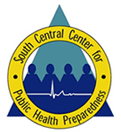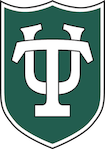
Disaster Responder Health and Safety
Course Description:
The Disaster Responder Health & Safety Course will address concerns for the safety and health of first responders involved in the response to natural disasters including hurricanes, tornadoes, and floods and will include the identification of specific hazards associated with these type events.
A number of topics will be covered including heat stress; injuries from working around debris and on unstable surfaces; dust; confined spaces; chemicals and contaminated flood and standing waters; electrical hazards; infectious diseases; food‐borne, water‐borne, insect‐borne and animal‐borne diseases of concern; animal and insect hazards; and traumatic stress injuries.
The Disaster Responder Health & Safety Course addresses public health and first responder health & safety issues when responding to man-made or natural disaster events. This past spring’s violent tornado outbreak left a wave of destruction and created numerous physical hazards and public health concerns throughout the Southeast region, including downed power lines, housing debris, tainted water, exposure to temperature extremes, exposure to hazardous materials, and psychosocial concerns. This course will discuss best practices and lessons learned taken from public health responses to these types of events.
Target Audience
Academic Faculty/Staff, Federal Government Employees, State Government Employees, Local Government Employees, Non-Government Employees and Students
Learning Objectives
- Analyze the risks to health & safety and their consequences to which first responders are exposed during disaster response
- Employ best practices in health and safety injury prevention & mitigation to sustain workforce strength and reduce morbidity and mortality during crisis intervention
- Identify perils and population vulnerabilities involving sanitation, hygiene and stress which threaten responders as well as the populations at risk and at large and mitigate consequences to the greatest extent possible through injury avoidance and prompt, effective intervention
- Plan for the use of effective techniques of hazard control during disaster response and train & equip responding agencies and personnel in their implementation
Instructor:

Col. Joseph Contiguglia, MD, MPH&TM, MBA, USAF, MC, CFS
Dr. Joseph Contiguglia received an M.D. in medicine and surgery from the University of Siena, an MPH&TM from
Tulane School of Public Health and Tropical Medicine and an MBA from St. Mary’s University. He completed residencies in Internal Medicine at NYU and Aerospace Medicine at the USAF School of Aerospace Medicine. He holds clinical faculty appointments at the University of North Dakota, Texas Tech University Health Sciences Center and Tulane School of Public Health and Tropical Medicine.
Available Credit
- 6.00 Participation/CETulane Professional and Continuing Education (PaCE) awards 6.00 hour(s) of credit for completing Disaster Responder Health and Safety
Price
Required Hardware/software
System Settings
This course is designed to work most effectively if your computer and internet connection meet certain minimal requirements. This course can be accessed using a Windows 10 PC or a Mac with High Sierra1, Mojave, or Catalina. Pop-up blockers should be disabled when viewing the course. Internet Explorer 11 (for Windows 10), or the current version of Google Chrome, Mozilla Firefox, or Apple Safari (for Windows 10 and or Mac) is required. Many of our courses require Java and JavaScript enabled.
Links to External Websites
Links to websites outside this course will open in a new window or tab. Some browsers may minimize the course window. If this occurs, maximize the course window to return to the course.
Adobe Acrobat Reader (for desktops and laptops)
Adobe Acrobat Reader is required to access some documents in this course. If you need to download a free copy of Acrobat Reader, click here.
Internet Connection Speed
A minimum download speed of 1.5 Mbps is recommended for an optimal experience, which is commonly the speed associated with a basic DSL or a cellular/satellite connection. A faster connection, such as cable or fiber service, with further enhance your online experience. A Wi-Fi connection is generally acceptable, but it is dependent upon one of the two services mentioned above. You can check your internet connection speed at http://www.speedtest.net/.

 Facebook
Facebook Twitter
Twitter LinkedIn
LinkedIn Forward
Forward